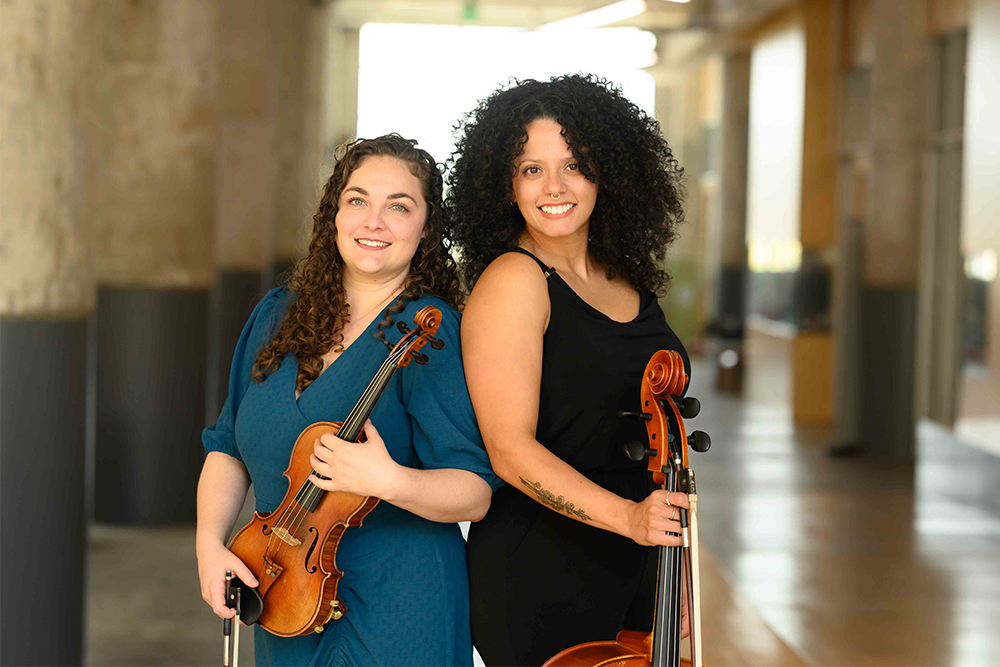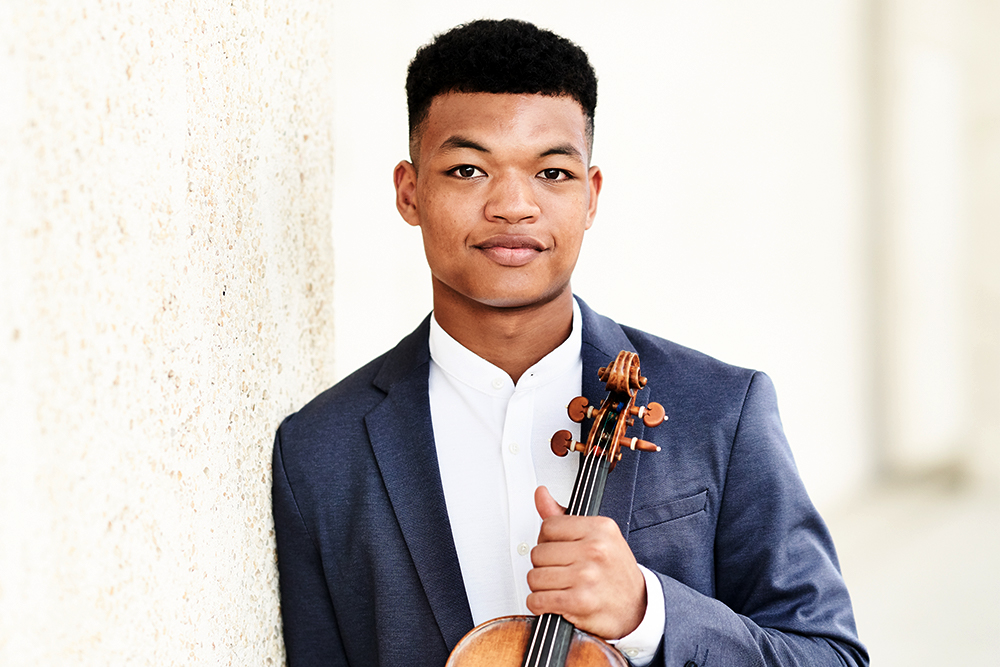Over two years ago, we reported that the beloved Iris Orchestra, facing an uncertain future, had transformed itself. Local fans of classical music will recall the orchestra’s unique brief since 2000: to bring a roster of virtuosos from around the world to Memphis for a few select concerts every year, and thus have them mingle with local host families and otherwise engage the community. And while their more than two decades of such concerts and engagement had been brilliant, after Covid it seemed that model was financially unsustainable.
But, it turned out, the players’ passion for the music and for Memphis prevailed, as the Iris Orchestra became the Iris Collective. Founder and conductor Michael Stern said at the time, “The musicians themselves grouped together, committed to the idea that they simply would not let Iris go away. It was absolutely musician-driven. And Iris will continue on. It’s going to have a different feel. I will be less involved, and it will be an amalgam of ensembles, chamber music, orchestra concerts, and new ways of imagining community engagement.”
It was not a far leap for a group that had, from the beginning, committed itself to being “an ensemble for the 21st century — flexible, nonhierarchical, and passionate about the highest standards of performance.” Yet, as an even less hierarchical collective, Iris was now charting a new course. How has the group fared since the dramatic restructuring?
Judging by the upcoming performance at the Germantown Performing Arts Center on Saturday, November 2nd, featuring the rising star violinist and former Memphian Randall Goosby, with Michael Stern back to conduct the orchestra, Iris is thriving more than ever. Indeed, it’s appropriate that the program is titled Transformations, for it is proof positive that the ensemble’s metamorphosis has been complete. Those violet Iris petals have become wings, a butterfly shed of its chrysalis and ready to fly higher.

As executive director Rebecca Arendt says of the concert, “It’s a beautiful example of how we’ve evolved. Orchestral concerts were such a huge part of Iris Orchestra, obviously, but they’re not a focal point in Iris Collective. We love to do them. We’re really excited about the show coming up, but what we’re really excited about is to use it as an opportunity to showcase the importance of music education in our community. The week leading up to it, Randall Goosby will be here all week, working with the students that we work with every day. He’ll be in the classrooms with us. He’ll be working after school with them, and then a number of them will be joining us on the stage for one of our pieces.”
That piece will be Adoration, by a composer who’s only been getting her due in this century, Florence Price. Born in Little Rock, Arkansas, she moved to Chicago due to Jim Crow and became a part of the Chicago Black Renaissance, and, though celebrated at the 1933 Chicago World’s Fair, her work “fail[ed] to enter the canon; a large quantity of her music came perilously close to obliteration,” as Alex Ross wrote in The New Yorker in 2018.
Yet as more ensembles have made a course correction to embrace composers of color, that has changed, and Price’s work has gained a higher profile. “Adoration is really beautiful,” says Arendt. “Randall plays it often. And there are a lot of iterations of it, so a number of our students have actually played it as an orchestral piece, just within their own programming that they do in schools. So to be able to come together to play it with professional musicians, with Randall as a soloist, with Michael Stern conducting, gives them a beautiful taste of what it’s like to be a professional musician with something that’s familiar to them already.”
It certainly won’t be lost on those students that Goosby, the star soloist of the evening, was one of their own only 10 years ago. “He went to Arlington High School,” notes Arendt. “I don’t believe he ever studied with an Iris teacher, but a number of our Iris musicians have worked with the same teachers that he’s worked with. Still, he is a product of Memphis. He performed all around the city while he was in high school.”
Goosby also echoes the kind of community engagement on which the Iris Collective thrives. He’s deeply involved with several nonprofits, such as Project: Music Heals Us, Concerts in Motion, and the U.K.-based Music Masters organization, which provides teaching, grants, and performance opportunities to young musicians. He’ll be carrying on such work in the week leading up to the concert as he makes special appearances in Iris’ educational programs, complementing the ongoing music instruction efforts of Iris artist fellows Gabriela Fogo and Roberta dos Santos.
The centerpiece of the November 2nd performance by Goosby, Stern, and the Iris Collective will surely be Felix Mendelssohn’s Violin Concerto in E minor, a foundational work in that instrument’s repertoire, opening with a striking solo violin passage that was unconventional for its time. But the players will also perform Emotive Transformations, a 2018 piece by James Lee III, and the folk-infused masterpiece Variaciones Concertante by Argentine composer Alberto Ginastera, which features a virtuosic movement for violin, Variazione in modo di Moto perpetuo. Yet Goosby’s star turn in this piece will be complemented with passages that highlight other musicians as well.
That, says Arendt, perfectly captures the Iris ethos. “It’s a piece that exemplifies what we think Iris Collective is all about because each variation highlights a different instrument within the orchestra. The collective wouldn’t be here if it wasn’t for our musicians, so I love the fact that the concert ends by celebrating them. For us, the collective is really about many voices coming together for a single purpose, and that’s to make Memphis a great place to live and a great place to connect.”
